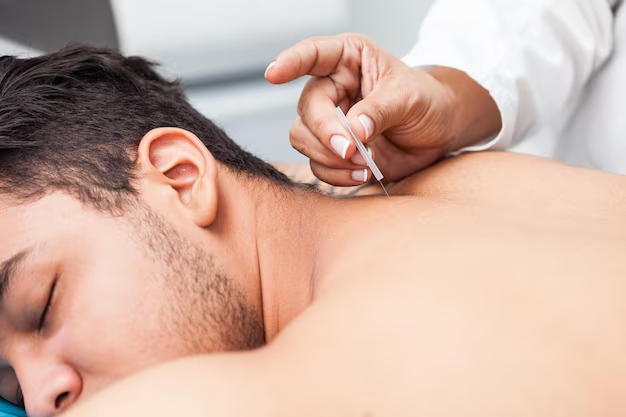Your Guide to Does Medicare Cover Dry Needling
What You Get:
Free Guide
Free, helpful information about Medicare Insurance and related Does Medicare Cover Dry Needling topics.
Helpful Information
Get clear and easy-to-understand details about Does Medicare Cover Dry Needling topics and resources.
Personalized Offers
Answer a few optional questions to receive offers or information related to Medicare Insurance. The survey is optional and not required to access your free guide.
Understanding Medicare Coverage: Does It Include Dry Needling?
Navigating the complexities of healthcare can often feel overwhelming, especially when it comes to understanding Medicare's coverage options for specific treatments like dry needling. With its growing popularity as a pain management treatment, questions about its insurance coverage frequently arise.
What Is Dry Needling?
Dry needling is a therapeutic technique used by physical therapists and other licensed practitioners to relieve muscle pain. It involves inserting fine needles into trigger points in the muscles, which can help release tension, improve flexibility, and promote healing. Although often compared to acupuncture, dry needling is based on Western medicine principles and focuses on specific areas of muscle tightness.
Does Medicare Cover Dry Needling?
The straightforward answer is no. Traditional Medicare does not cover dry needling as it is considered an experimental therapy and falls outside the scope of services approved under Medicare guidelines. However, some Medicare Advantage plans may offer additional benefits that include dry needling coverage, depending on the provider and the specific plan. It's always wise to review your plan's benefits or contact your insurer directly for the most personalized information.
Exploring Coverage Alternatives
If you have Medicare and need therapeutic pain relief, consider these alternatives that may be covered:
- Physical Therapy: Medicare Part B covers medically necessary physical therapy as part of outpatient services. Discuss with your physical therapist to see if dry needling could be incorporated into an existing treatment plan with conventional therapies covered by Medicare.
- Acupuncture: As of recent updates, Medicare covers acupuncture for chronic low back pain. While distinct from dry needling, acupuncture might offer similar relief for certain conditions.
- Chiropractic Care: If spinal manipulation is deemed necessary by a chiropractor for a medical condition, Medicare Part B may cover some costs.
Financial Assistance and Support
Understanding your coverage options is a crucial part of managing health-related expenses. Beyond insurance, several programs offer financial support to help offset medical costs:
🏦 Government Aid Programs
- Medicaid: Provides healthcare coverage for low-income individuals and families. Eligibility can vary by state, and some might extend to cover services not included in Medicare.
💳 Credit Card Solutions
- Healthcare Credit Cards: Consider cards like CareCredit that provide a line of credit specifically for health-related expenses. These can offer immediate support, especially in cases where dry needling is essential for your health.
💡 Educational Opportunities
- Workshops on Medicare: Many community centers offer free or low-cost educational workshops on Medicare. These classes can help demystify insurance jargon and empower you to make informed decisions.
🗓️ Financial Planning Services
- Non-Profit Financial Counselors: Organizations like the National Foundation for Credit Counseling (NFCC) can assist in creating a personalized financial plan to manage any medical or related expenses.
Finding your way through healthcare options and finances can be daunting, but remember you're not alone. By leveraging the resources available to you, it's possible to balance your healthcare needs with financial sustainability. Consider reaching out to the programs listed above if you need further assistance with expenses related to dry needling or other medical treatments.
What You Get:
Free Medicare Insurance Guide
Free, helpful information about Does Medicare Cover Dry Needling and related resources.

Helpful Information
Get clear, easy-to-understand details about Does Medicare Cover Dry Needling topics.

Optional Personalized Offers
Answer a few optional questions to see offers or information related to Medicare Insurance. Participation is not required to get your free guide.


Discover More
- Am I Elgible For Medicare
- Am I Enrolled In Medicare
- Am I Qualified For Medicare
- Are Adult Diapers Covered By Medicare
- Are Chemotherapy Drugs Covered By Medicare Part d
- Are Colonoscopies Covered By Medicare
- Are Covid Tests Covered By Medicare
- Are Cpap Machines Covered By Medicare
- Are Cpap Supplies Covered By Medicare
- Are Dental Implants Covered By Medicare
